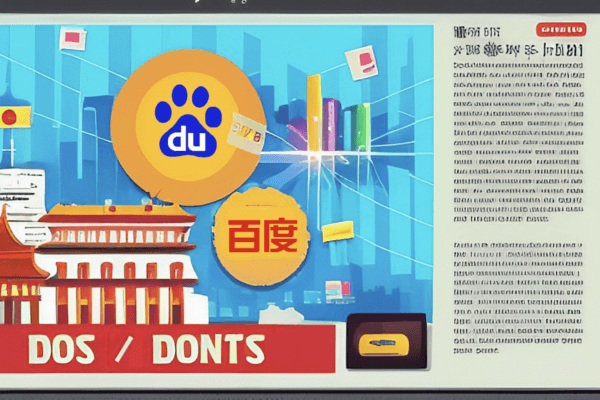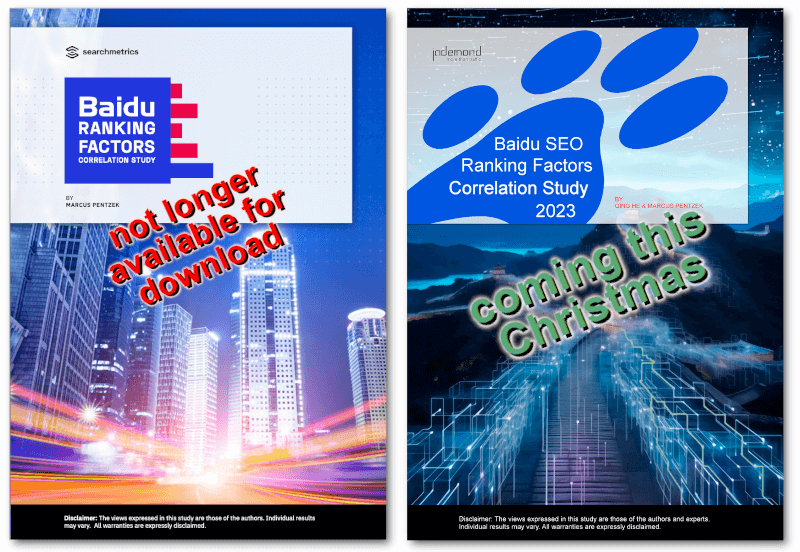Baidu Liaotian (百度聊天) What You Need to Know About Baidu’s ChatGPT-Like Feature
- 2023-01-30
- Social Commerce
On the last day of November 2022, OpenAI opened the gates to their amazing texting tool chatGPT, which gained a million users just 6 days later.
Not long after that, the first voices appeared predicting Google’s demise, as AI could provide useful answers in much less time and to the point to the user’s question, while Google, despite some direct answers above the search results, still often has to make the user click through the individual search results.
Olaf Kopp, a German search engine marketing specialist, soon offered a visual concept of how a chatGPT-like integration into the Google search results might look like.
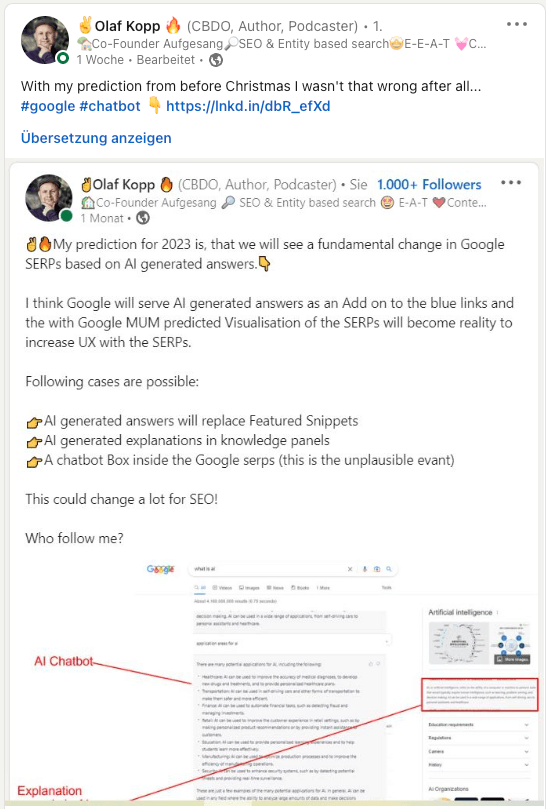
Following that, You.com presented an AI chat feature ready to use for everyone – without even signing up (like OpenAI asked to).
Just after the year switched from 2022 to 2023, Microsoft (an investor to OpenAI) announced that they are planning to integrate chatGPT functionality into Bing search.
Just before Chinese New Year, Google announced to introduce 20 AI related projects this year – of which one is probably a chatGPT-like integration into Google search, (probably very) similar to Olaf’s vision.
That was a lot of movement around chat AIs. Has this shaken Baidu into announcing something similar to Bing and Google? Is this the reason for Baidu announced a chat GPT-like feature?
Will it be called Baidu Liaotian as we suggested in this headline?
What is chatGPT?
ChatGPT is an artificial intelligence-driven chatbot created by OpenAI, a research lab focused on developing advanced AI technology. ChatGPT is designed to help people find answers quickly and easily through conversations. The chatbot uses natural language processing (NLP) to comprehend users’ questions and provide accurate responses in a conversational manner.
The AI is trained on massive amounts of internet data – especially based on user-generated content in a conversational style (online forums, Twitter, …) to make the responses feel conversation-like.
Interaction/conversations with the AI chatbot feel almost as if the AI was self-aware – like there would be a real person on the other side of the chat, that just knows a lot.
What is Baidu planning to do?
Baidu announced recently that they are planning to implement an AI chat feature similar to chatGPT into their search results page in March 2023. Baidu plans to use natural language processing (NLP) technology, similar to chatGPT, to understand users’ questions and provide relevant answers.
This could be a huge benefit for people who don’t know how to use search terms effectively – or don’t have the time to scroll through numerous web pages before they find what they need.
The threat on Weibo just exploded by people commenting on this post from Sina Tech:
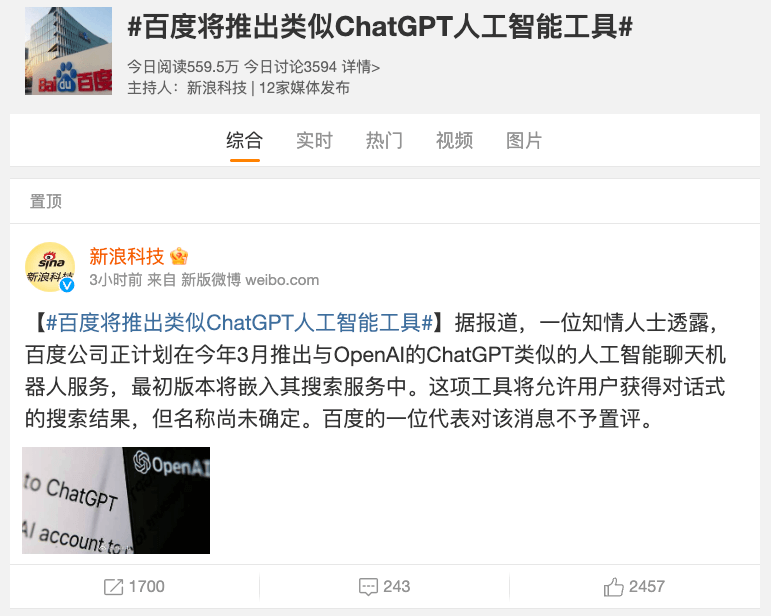
What is the technology behind it?
Technologies in the west most likely based their own AI training algorithms for building GPT-like AI models on Google’s BERT (Bidirectional Encoder Representations from Transformers), MUM, and LamDA – or at least inspired by them.
Baidu is heavily investing in AI themselves for many years. They developed self-driving car technology and software, and their self-developed DuerrOS powers machines that are meant to correspond with AI technologies (like their very own smart speakers are powered by DuerOS).
Baidu also has been working on Natural Language Processing, announcing ERNIE (Enhanced Representation through kNowledge IntEgration), their very own Transformer-based self-supervised language model similar to BERT, but much more advanced in interpreting especially Chinese language content.
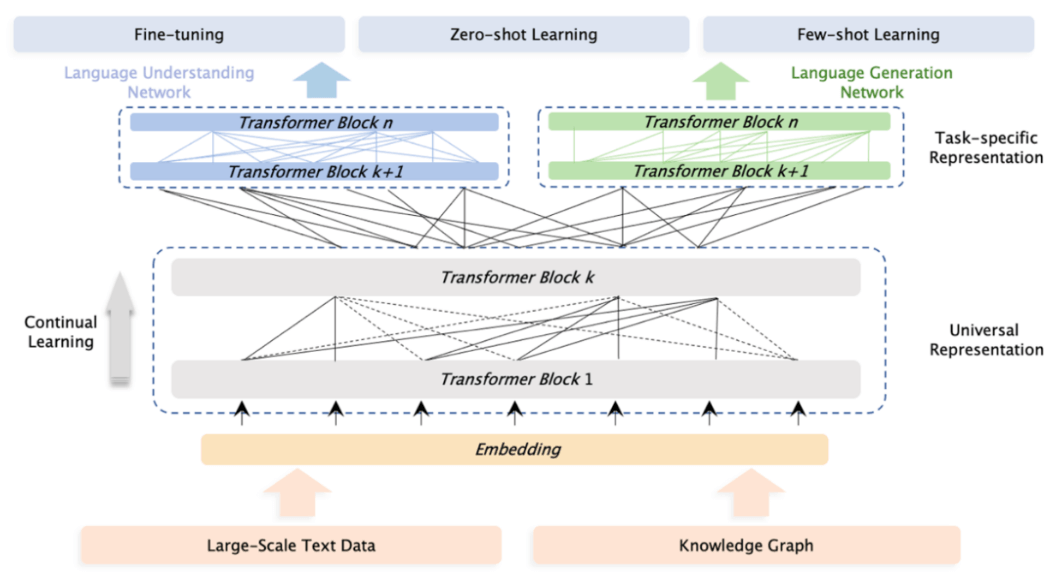
For businesses, they are already offering many AI-powered solutions to help them grow and manage many different tasks and challenges with their AI product platform 百度爱番番 (Baidu AI Fanfan – https://aifanfan.baidu.com/), a One-stop intelligent marketing butler for enterprises (that’s how they call it).
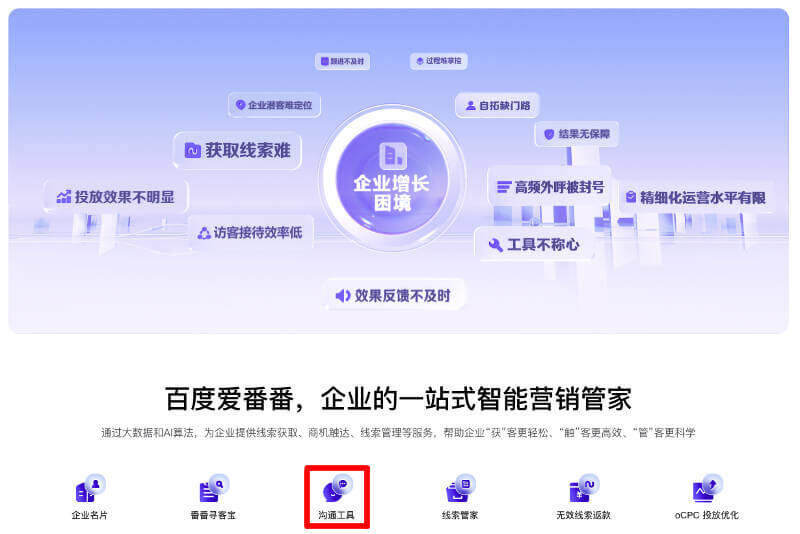
Among other services there is a communication module, that should help enterprises to set up 24/7 support for their customers. It is very likely that Baidu will use this part of their AI suite to create a new chat feature for Baidu search.
This also explains their tight timeline for announcing it to be only accessible by March this year.
Why is that such a big thing?
While it seems to be an “old hat” already, after introducing the integration of such a chat feature after You.com already has one, and Bing and Google announced to have one soon, it can be a game changer for the Chinese search engine landscape.
For years people have been moving from traditional web searches on search engines like Baidu, Sogou, and Bing to social media apps to find information on products and find entertainment. The B2C search landscape has shifted over to those socially and UGC-powered platforms, where people find themselves entertained and informed at the same time.
Just imagine Baidu switched the concept of their mobile Baidu-App, which already has 634 Million monthly active users (https://www.statista.com/statistics/1315592/baidu-app-monthly-active-users/) from a search engine results-driven app towards an entertaining app, which provides what people look for on WeChat and co – communication!
Let’s imagine what such a product might look like:
Baidu decided based on the form of the input (is it a keyword or phrase – or is it a whole sentence), if it decides to show regular search results in form of snippets leading to other websites (and ads of course leading to other websites, as Baidu needs to earn money as well) or if the user expects rather a real human-style answer.
Instead of showing search results the app could switch into a messenger-style node providing natural-looking answers – just like the people are used to get them on their Wechat from their friends.
But this time the “friend” is the Baidu AI, trained on information from the whole Chinese internet.
Every now or then, Baidu could throw in hints, that there are indeed other online resources, that could provide additional information, like Baidu Baike, Zhidao, Tieba or even a non-Baidu website (or platform) that provides just this answer.
If a business runs brand ads on their company name, the AI could ask, if the user wants to visit the official website of *BRAND-XYZ* which sells just the kind of products, the user asked the AI about – which would create ad revenue for Baidu.
The AI could suggest a video, look at an image slideshow, online discussion on the topic … all powered by information Baidu already has.
The AI could become a new best friend and draw a lot of attention away from the “traditional” Social Media apps back towards Baidu and their AI companion.
Agreed – it might not be traditional web search anymore – but Baidu could make up some market share of B2C users, which they lost over the past 15 years towards Social Media.
OK, enough of crystal ball divination (what did you expect from someone formerly known as Psychic SEO?) – time will tell if at least some of the predictions will become true.
Challenges of AI Chatbot Integration
The challenges Baidu will be facing are quite real and down-to-earth and did affect Baidu before already: the risk of providing inaccurate information.
The risk gets even bigger when we think about medical information. In 2016 Baidu was sentenced to pause all ads (for more than a year) as the ads of one medical company advertising surgery which caused the death of several people.
Just imagine the AI providing health advice that leads to people suffering health issues or even death!
I am sure Baidu will spend the next 2 months coding security features to make sure Your-Money-or-Your-Life topics won’t be answered by AI-generated content.
Conclusion
(Disclaimer: this conclusion is written by an AI based on the above content)
In conclusion, it is clear that the introduction of an AI chat feature to Baidu search could have a big impact on Social Media users. For example, it could potentially draw attention away from other popular social media platforms and back to Baidu.
However, this move also presents some challenges for Baidu, such as the risk of providing inaccurate information.
Baidu will need to take steps to ensure the accuracy of the AI’s responses and to prevent potential harm that could arise from the use of the AI chat feature.
Only time will tell how successful this move by Baidu is, but it is certainly an interesting development worth watching out for in March 2023.
Do you need assistance on your China Marketing? Or would you just schedule a free call to discuss your options? No matter of SEO for China, Search Ads, Social Media or Chinese E-Commerce, just send us a message!
Recommended Articles:
Recent Posts
- Navigating Compliance and Consumer Trust in China 2024-03-19
- Baidu Search Performance Analysis 2024-03-17
- Dashboard of the Baidu Webmaster Tools 2024-03-16




